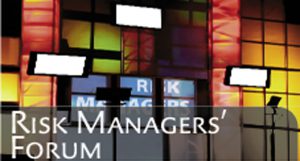Studying, learning and asking questions develop skills that make work easier and more accurate
[Natural curiosity is] important because the types of customers that an agent may have the opportunity to serve are unimaginably diverse.
By Paul Martin, CPCU
This past year, I spent weeks training brand new property and casualty underwriters in the mechanics of how commercial insurance policies work—what they do, what they don’t do, what they cover, and what they don’t. Students were bright and quick and got what I was teaching them.
What they didn’t have was experience. They hadn’t lived very long as adults or seen very much. Because of this, I frequently encouraged them to become a student of everything, to show curiosity at every turn.
Why is a natural curiosity important to producers or underwriters who are working to build technical skills in interpreting and explaining policies to agents and customers? It’s important because the types of customers that an agent may have the opportunity to serve are unimaginably diverse.
Sure, a producer may have a niche where they sell insurance to the same type of customer over and over, but if they want a book of business that is less vulnerable to market ups and downs, they’ll work to diversify it with different types of accounts.
Underwriters need to be curious because often they must imagine the physical details of the accounts they are being asked to quote. If they have studied different types of operations, properties, vehicles, and exposures to loss they can more easily imagine the specifics they may not have the time or opportunity to explore.
Let’s consider insurance/risk management categories where professionals should be curious.
Liability. At the heart of commercial insurance is the potential liability a customer could face if things go awry. Understanding liability exposures means the producer or underwriter has at minimum a basic understanding of what the insured is doing every day and where.
What are the premises like? Who comes and goes to those premises? What are the dangers there? Machinery? Activities?
If customers are leaving their premises to do their work, where are they going? What are they taking with them? What are they doing there? Are they interacting with the public? Other operators? Is what they are doing dangerous?
A producer may hear of a particular type of operation and wonder how it works. Google it. Find online videos about it. Follow up with more questions about anything not understood.
Property. There are countless types of property, whether real or personal property. Producers should understand the basics of building construction types—frame, masonry, non-combustible, and fire-resistive, and what makes them what they are.
Underwriters and producers should be examining, when possible, the types of fire-extinguishing systems and the sprinkler head options for various types of occupancy. They should explore equipment and tools they don’t know, asking questions about the value, the use, and the hazards of using them.
The most important parts of property insurance are the value of the property and the perils it is exposed to regularly. Producers should keep up with the marketplace costs of construction. They should keep tabs on the impact of inflation on contractors and those doing service work for customers.
For example, during the last few years, supply chain disruptions and manufacturing challenges have caused the cost of repairing automobiles to be much higher than the normal inflation rates mentioned in the news.
Producers and underwriters should understand weather patterns in different parts of the country and world. They should know the risks to roofs whether in Tornado Alley or in the far north, where the weight of snow and ice can be a real risk.
Underwriters and producers should know the protection class system that the Insurance Services Office uses to classify communities around the country, and what makes a difference in getting a better grade.
Workers compensation. The workers compensation policy is probably the least read insurance policy. This makes sense because the policies respond to the law of each state. What’s more important for the underwriter and the producer to understand is the value of good risk management practices by employers.
The producer should become a student of different operations and what makes them dangerous. Underwriters should study loss control and recognize what practices make a difference to the incident rates of various job sites. They should familiarize themselves with loss control reports of their customers and the safety recommendations that are routinely made by experienced professionals.
Both underwriters and producers should build expertise in how various operations are classified by the National Council on Compensation Insurance and what distinguishes one classification code from another.

Executive exposures. More than ever, leaders of organizations face serious exposures for the decisions they make as executives or professionals. Producers should follow the lawsuit trends involving boards of directors and leaders whether from the public, customers, or employees.
Pay attention to industry journals and other news outlets that follow the types of customers you hope to insure.
Transportation. The commercial automobile insurance market has been sort of a mess for years now. Producers and underwriters should be asking what and why—all the time.
What is driving the liability verdicts? Is there anything that telematics data can teach us. What is telematics? It is the trend where data regarding the use of vehicles is collected and examined in the hope of better understanding accidents, injuries, and damage. What impact is inflation having on the cost of new vehicles, or the costs to repair autos?
Conclusion
There is always someone who understands a type of operation or industry better than the producer or underwriter, but that doesn’t mean professionals can’t continue to study, learn, or ask questions. Doing so develops skills that make their work easier and more accurate.
Learning also builds the intuition of the individual that others can count on when the data just doesn’t explain the trend or the results.
Underwriters and producers who give up their curiosity are giving up on themselves and letting down those around them. By making risk management education central to the thinking of an underwriter or producer, they grow into the professionals that their customers and industry are counting on.
The author
Paul Martin, CPCU, is director of academic content at The National Alliance for Insurance Education & Research headquartered in Austin, Texas. Paul works to develop, maintain, and deliver quality educational programs for the organization. Paul has over three decades in the insurance and risk management industry.





